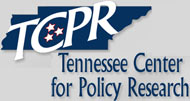9/23/2008
Tennessee Policy Analysis Challenges Red Light CamerasTennessee Center for Policy Research paper determines red light cameras more effective at increasing revenue than safety.

The Tennessee Center for Policy Research issued a policy paper yesterday questioning the motivation of cities that use red light cameras. The center describes itself as a non-profit group dedicated to promoting free market solutions to public policy issues. Analysts at the center examined eight photo enforcement programs in the Volunteer State with an eye toward revenue, safety and legality. The researchers determined this particular free market solution was not worth adopting.
"The argument that red light cameras increase safety is preposterous," report co-author Justin Owen said in a statement. "The only thing that increases is the amount of money going from the pockets of drivers into the pockets of the cities and the red light camera companies."
The report found that between 45 and 85 percent of the revenue from each photo ticket goes to a private, for-profit company located either in the US, Australia or Germany. Kingsport, for example, collected $342,150 from traffic tickets, parking fines and code enforcement in 2006. The following year, the city installed red light cameras and increased this amount to a staggering $1,529,823. Australia's Redflex pocketed $45,600 out of the first $57,000 in tickets collected, and all revenue above this amount was split 50-50 between the city and Redflex.
The report's authors obtained data from the city of Chattanooga and determined that accidents increased at some intersections and declined at others between January 2006 and 2008. The authors contend that this shows photo enforcement systems deliver no demonstrable safety benefit. Instead, the report showed that cities have ignored proven engineering alternatives such as increasing the duration of the yellow period at traffic lights beyond the ITE's bare minimum standard. In at least one case, Chattanooga was caught using yellows so short that they violated the law and forced a judge to order $8800 in refunds.
The analysts also questioned the practice of treating a red light camera citation as a civil, not criminal matter. The primary purpose of a civil fine, such as a building code or zoning violation, is to remedy an existing condition or deter ongoing conduct. This contrasts with a criminal fine designed to punish past conduct. Under this construction, red light camera tickets are classified improperly.
"Once the light has been run, the specific violation itself cannot be remedied," the report stated. "This corroborates the notion that, although cities deem these fines to be civil, they are actually punitive, and additional constitutional protections should apply."
The specific protection cities seek to avoid by improperly adopting civil procedures, the authors say, is the presumption that the accused is innocent unless proved otherwise. By side-stepping the criminal process, cities can impose fines without establishing guilt beyond a reasonable doubt.


